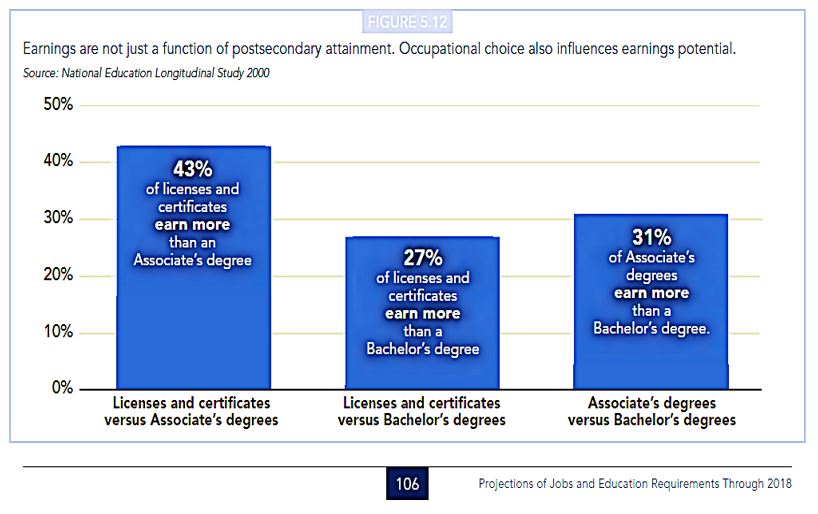No products in the cart.
Uncategorized
Another Message about College – Almost, but not quite right!
During a recent weekend, I attended an online church service (still sounds funny to say I “attended” an online service!). During the service, some volunteers shared their experiences from a recent service trip, but I took special note of one story, however.
The volunteer shared that, while on her service trip, she talked with a young woman who was working in food service and had put aside her aspirations for college so she could earn money for her family. This was especially urgent because both her parents were suffering from long-COVID and were not earning income.
The church volunteer urged the young person to not give up on her dream to finish college and to try to find a way to get back into school. She encouraged her that – by finishing her associate degree, she would be able to earn more and ultimately help her family even more effectively over the long term.
That sounded good.
Then the volunteer said she also urged the young person to continue in education to earn a bachelor’s degree so she could earn even more. RED FLAG!
I don’t want to judge the volunteer’s intentions because she obviously is a very loving and caring person. But unfortunately, if that is the only message she shared with the young person, I think it is flawed, and perhaps even a little damaging. The volunteer doesn’t seem to know all the facts about earnings and degrees. Simply earning a college degree does not guarantee higher earnings. Several years ago, Georgetown University assembled data showing that about 27% of young workers with skills certifications actually earn more than young workers with a bachelor’s degree! 
Another economist, Richard Vedder, analyzed workforce data and discovered that almost half of recent college graduates are “underemployed,” meaning that they are holding jobs that don’t require a bachelor’s degree. [1]
For some young people, this underemployment after college is a phase. This was my story, where I was employed in jobs that didn’t require my communications degree for two years after I graduated. Then, by reading and working on the book “What Color is Your Parachute,” I developed a career plan and applied networking strategies that got me into an education policy career path – one that did require a bachelor’s degree.
But many young people get stuck. A report by Strada and Burning Glass indicates that for many young people, underemployment becomes permanent, not just a temporary problem. [2]
So, I wished that the volunteer knew a little bit more about how important it is to not only go to college but go with a purpose. As we say at NC3T, “every learner with a dream AND a plan.” Whether they are 16 or 26 or 36 years old, they need to engage in self-discovery and investigate more about the job market. Then they would be better equipped to research and choose the form of postsecondary education that is the best fit to pursue their career goals.
A final thought. Because that volunteer shared her story during the church service, hundreds of parents, young adults, teens, and some pre-teens were listening, and heard that message – “get a bachelor’s degree so you can earn more.” And each young person hears that message countless times during their youth and childhood.
Her message was almost, but not quite, right. Instead, every day let’s communicate a better message, something like this, “Aim high to do good work. Get as much education and training as you can and need – but FIRST, know yourself and know WHY you are pursuing it.”
Thanks for being a partner in spreading this message!
Hans Meeder is President of the National Center for College and Career Transitions (NC3T). NC3T provides planning, coaching, technical assistance, and tools. These strategies help community-based leadership teams plan and implement their college-career pathway systems and strengthen employer connections with education. Discover more at www.nc3t.com.
[1] Vedder, Richard, et al, 2013, Why Are Recent College Graduates Underemployed? University Enrollments and Labor-Market Realities
[2] Strada/Burning Glass, 2018, The Permanent Detour Underemployment’s Long-Term Effects on the Careers of College Grads

